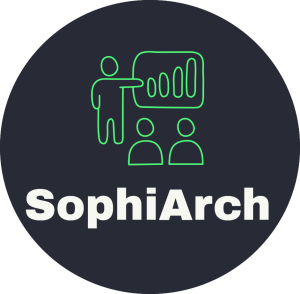AI301 Developing LLM Applications
AI301 Developing LLM Applications
Transform your career with this practical guide to unlock the power of cutting-edge AI technology! Whether you're building virtual assistants or other AI-driven solutions, this course equips you with the knowledge and hands-on skills to leverage LLM APIs, design robust architectures and deploy scalable solutions.

What You'll Learn
- Dive into how LLMs work
- Hands-on python coding
- Invoke LLM APIs
- Run LLM locally on PC
- Design of LLM Application Architecture
- Enhance LLM with RAG, tool calls
- LangChain, LangGraph, Docker Compose
- Deploying to Production
Course Content
Course Preview Video
Course Requirements
For successful learning experience:
- Internet connection
- Mac or windows PC
- Account on github:Labs on GitHub Codespaces
- Basic python coding proficiency
- Time commitment:When convenient, 15-30 mins sessions for total of 2-3 hours
Frequently Asked Questions
How is the course structured ?
The course is self-directed, allowing you to progress at your own pace. It is divided into modules that build upon each other, starting from foundational knowledge to more advanced topics in application development and deployment.
What can I expect from this course ?
You'll gain hands-on experience building applications using popular LLM services, learn to interface programmatically with LLM APIs, and explore techniques to enhance your applications. The course also covers designing robust architectures and deploying scalable solutions.
Will this course prepare me for a career in AI development ?
Yes, this course equips you with the skills needed to develop AI-driven applications, including chatbots, virtual assistants, and other LLM-powered solutions. By mastering these tools and techniques, you'll be well-positioned for roles in AI development and technical management.
What does the Intermediate mean ?
This course is designed for intermediate Python users, so some prior experience with python programming is recommended. At least some understanding of python syntax and basic programming concepts will help you grasp the course material more effectively.
How can I apply what I learn to real-world projects ?
The techniques and tools taught in this course are directly applicable to building AI-driven applications. From designing chatbots to enhancing them with prompt engineering, tool calls and RAG, you'll have the skills to create practical solutions that leverage cutting-edge technology.
Course Tutor

Jason Lau
Meet Jason—a dedicated course tutor with a passion for teaching and empowering students. Having spent over 25 years in software development and deployment within the telecommunications industry, he brings extensive experience and practical insights to your learning journey. His expertise and real-world application will guide you through the course material, helping you develop valuable skills and gain a deep understanding of the subject.

